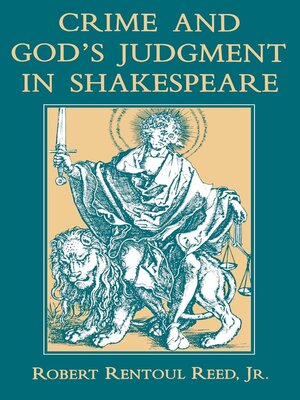
Sign up to save your library
With an OverDrive account, you can save your favorite libraries for at-a-glance information about availability. Find out more about OverDrive accounts.
Find this title in Libby, the library reading app by OverDrive.



Search for a digital library with this title
Title found at these libraries:
| Library Name | Distance |
|---|---|
| Loading... |
Divine retribution, Robert Reed argues, is a principal driving force in Shakespeare's English history plays and three of his major tragedies. Reed finds evidence of the playwright's growing ingenuity and maturing skill in his treatment of the crime of political homicide, its impact on events, and God's judgment on the criminal.
Reed's analysis focuses upon Tudor concepts that he shows were familiar to all Elizabethans—the biblical principle of inherited guilt, the doctrine that God is the fountainhead of retribution, with man merely His instrument, and the view that conscience serves a fundamentally divine function—and he urges us to look at Shakespeare within the context of his time, avoiding the too-frequent tendency of twentieth-century critics to force a modern world view on the plays.
Heaven's power of vengeance provides an essential unifying theme to the plays of the two historical tetralogies, Julius Caesar, Hamlet, and Macbeth. By analyzing these plays in the light of values held by Shakespeare's contemporaries, Reed has made a substantial contribution toward clarifying our understanding of the plays and of Elizabethan England.







